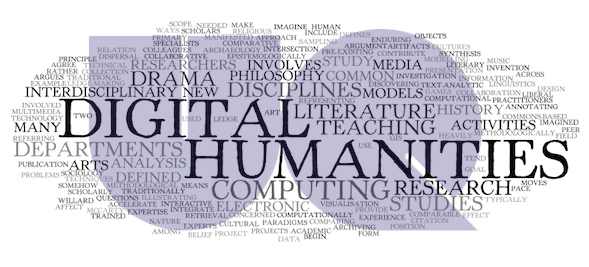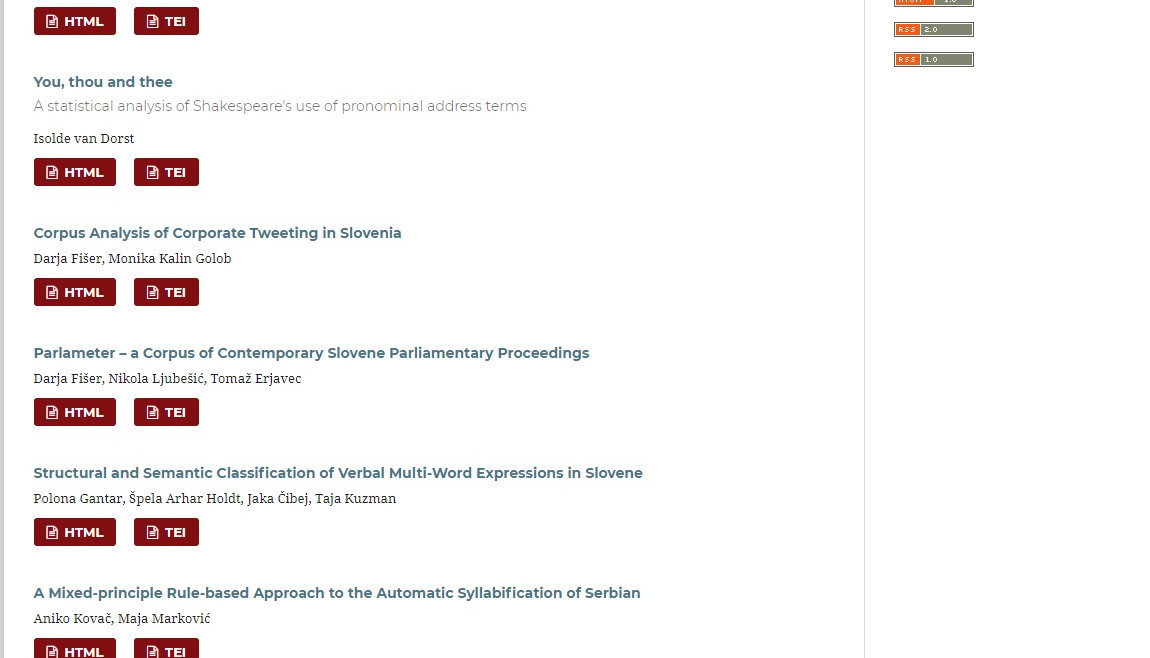Faculty of Arts, University of Ljubljana
September 29th – October 1st, 2016
First call for papers
The 10th Conference on Language Technologies will widen its scope to the field of Digital Humanities. Digital humanities is highly interdisciplinary and collaborative, radically changing the accepted practices in humanities research but has so far lacked a national or regional event to present its results and encourage discussion.
Therefore the Slovenian Language Technologies Society (SDJT), the Centre for Language Resources and Technologies at the University of Ljubljana (CJVT) and the research infrastructures CLARIN.SI and DARIAH-SI will, at the end of September 2016, organise the conference “Language Technologies and Digital Humanities”.
The topics of interested include, but are not limited to:
- speech and other mono- and multilingual language technologies
- digital linguistics: translation studies, corpus linguistics, lexicology and lexicography, standardisation
- digital humanities and historical studies, ethnology, musicology, cultural heritage, archaeology, and fine arts
- digital humanities in education and digital publishing
We welcome submission that present guidelines, research, good practices, projects and results in these areas.
The conference will also include invited lectures, a student section, and round tables on topics connected with the conference.
Important dates
- 01. 03. 2016 submission of extended abstract
- 01. 04. 2016 notification of acceptance
- 01. 06. 2016 (optional submission of full paper)
- 15. 07. 2016 (notification of acceptance)
- 01. 09. 2016 submission of final paper or abstract
- 29. 09.–01. 10. 2016 CONFERENCE
Instructions for authors
The authors first submit extended abstracts, which, on acceptance, can be extended to full papers. These will undergo another round of reviewing, with the final version being published in the conference proceedings. Alternatively, the authors can submit the final version of the extended abstract, which will be published in the book of abstracts.
The official languages of the conference are English, Slovene, Croatian, Serbian, Bosnian, Montenegrin and Macedonian.
The extended abstracts should be two pages long (excluding the bibliography), and the full papers 8–10 pages long. The camera ready papers and abstracts should be formatted according to the conference guidelines, which will be published shortly.
The contributions are collected using EasyChair at
https://easychair.org/conferences/?conf=jtdh2016
The authors of the contributions should indicate if it is a student contribution, where all the authors should be students. These papers will have a separate section at the conference, with the best student paper award.
The abstract booklet and conference proceedings will be available on the Web in time for the conference.


